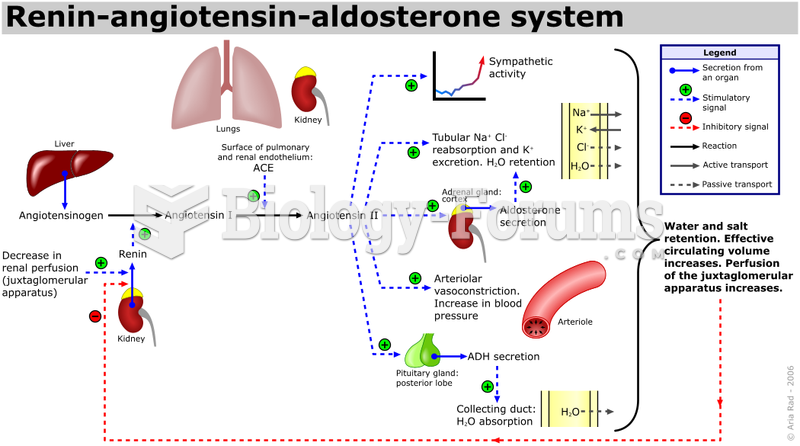|
|
|
Signs and symptoms of a drug overdose include losing consciousness, fever or sweating, breathing problems, abnormal pulse, and changes in skin color.
Allergies play a major part in the health of children. The most prevalent childhood allergies are milk, egg, soy, wheat, peanuts, tree nuts, and seafood.
Persons who overdose with cardiac glycosides have a better chance of overall survival if they can survive the first 24 hours after the overdose.
There can actually be a 25-hour time difference between certain locations in the world. The International Date Line passes between the islands of Samoa and American Samoa. It is not a straight line, but "zig-zags" around various island chains. Therefore, Samoa and nearby islands have one date, while American Samoa and nearby islands are one day behind. Daylight saving time is used in some islands, but not in others—further shifting the hours out of sync with natural time.
One way to reduce acid reflux is to lose two or three pounds. Most people lose weight in the belly area first when they increase exercise, meaning that heartburn can be reduced quickly by this method.
 Mechanism of action of antipsychotic drugs: (a) overproduction of dopamine; (b) antipsychotic medica
Mechanism of action of antipsychotic drugs: (a) overproduction of dopamine; (b) antipsychotic medica
 The S-curve in the human vertebral column--a result of the evolution of bipedality--makes humans hig
The S-curve in the human vertebral column--a result of the evolution of bipedality--makes humans hig
 Mechanism of penicillin: (a) Bacterial cell wall strengthened by peptide cross-links. (b) Penicillin ...
Mechanism of penicillin: (a) Bacterial cell wall strengthened by peptide cross-links. (b) Penicillin ...




